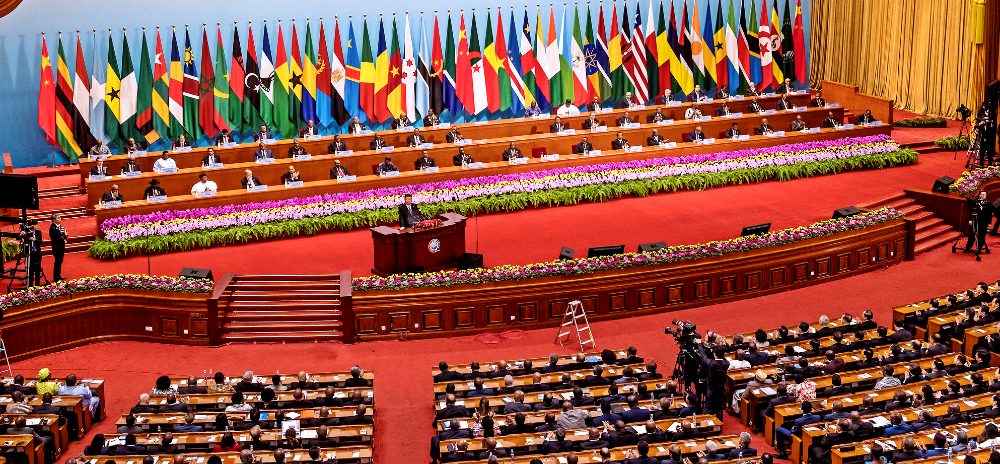TWENTY years down the line, at the eighth ministerial conference of Forum on China-African Cooperation (Focac) Chinese President Xi further cemented the relationship with Africa even in the deepest of the pandemic — the virulent Covid-19 — assuring an everlasting friendship in key areas of mutual benefits.
Areas to be strengthened include healthcare, poverty reduction, agricultural development; trade and investment promotion; digital innovation, green economy and capacity building of the African populations.
These implications targeted on Africa have an intense impact on Zimbabwe which has been enjoying the cooperation dating back to the time of colonialism through social and economic assistance from China.
Firstly, Xi promised to fight the Covid-19 pandemic with solidarity which is the biggest issue considering that Africa is now threatened by a new variant named omicron, believed to be deadlier than the delta variant and highly likely to affect Zimbabwe considering the day to day business engagements with the two nations.
This assurance is positive for Africa and Zimbabwe in particular considering that China has stood out for Zimbabwe since the start of the pandemic and fought the virus side by side ensuring the accessibility and affordability of vaccines. This will cushion the threat to public health, the economic and social disruption that threatens the long-term livelihoods and wellbeing of millions of Zimbabweans. The effects heavily affected the economies and enterprises across the globe, including global supply chains, leading to widespread business disruptions and this should be avoided by all means necessary.
Another key area which is of mutual benefit that Xi emphasised and is of great importance to Africa is the continuous initiative aimed at poverty reduction and agricultural development is progressive for Zimbabwe in its ambitious goal to achieve a US$8.2 billion agriculture economy by 2025 following the launch of the Agriculture and Food Systems Transformation Strategy by President Emmerson Mnangagwa. Measures will include China undertaking 10 poverty reduction and agricultural projects for Africa, and sending 500 agricultural experts to the continent. In 2021, there are 490 million people in Africa living in extreme poverty, or 36 percent of the total population. This number is up from 481 million in 2019. Although this is an increase of just over 9 million, it represents an overall decrease as the population increased by roughly 30 million.
Since 2012, China lifted over 100 million members of its rural population out of poverty. The government has relocated millions of people from remote villages into apartment complexes. Sometimes these were built in towns and cities, but sometimes new villages were built near the old ones, a great lesson for Africa.
Xi also pointed out that China will aim to reach US$300bn in total imports from Africa in the next three years in its trade promotion programme. This is good news for Africa, which suffers an imbalance in trade. Last year, China’s total import and export volume with Africa reached US$ 208.7 billion. China’s imports fell by 3.8 percent in the mean period to US$95.5 billion, while exports rose 7.9 percent to US$113.2 billion. Africa’s trade deficit with China runs at US$17.7 billion. Africa should take advantage of this initiative in trying to close the trade deficit with the economic giant. Zimbabwe on its part should capitalise on the already mutual relationship with China to reverse years of economic stagnation.
The digital innovation programme which Xi also emphasised has come at an opportune time for Zimbabwe considering that the country’s digital financial services proved to be the strongest foundation for the further development of the digital economy in the country. Zimbabwe also boasts a youthful generation which is tech savvy and does not participate in the traditional ways of production such as Agriculture. Empowering such a key population is crucial for economic development for Zimbabwe and Africa. Zimbabwe needs to capitalise China’s experiences and identify the challenges and opportunities for future growth in terms of digital transformation that includes not only digital financial services but focus more on digital infrastructure, digital government platforms, digital entrepreneurship, and digital skills.
The green development programme which will see China undertake 10 green development, environmental protection and climate action projects for Africa holds significant value for Africa and Zimbabwe in particular since the concept of the green economy and green growth remain relatively new to Zimbabwean entrepreneurs, as well as to the general public.
Increasing temperatures and sea levels, changing precipitation patterns and more extreme weather are threatening human health and safety, food and water security and socio-economic development in Africa. China’s size and remarkable economic growth has given rise to sharply contrasting trends in its green economy transition. It has nearly half of the world’s coal power stations, but also more installed renewable energy than any other country. The Chinese Communist Party, especially under President XI has been alive to the fact that rapid industrialisation has exacted a heavy environmental cost. Africa should draw lessons from China in greening the economy.
Additionally, President Xi said that China will undertake 10 peace and security projects. Considering the neutral approach of China in dealing with foreign conflicts and a state of the art army, Africa will benefit and be able to defend itself when faced with insurgencies.
Going forward, the partnership of Africa and China should be maintained and enhanced for the benefit of future generations and for Zimbabwe to try and reverse the repercussions of western imposed sanctions and grow the shaky economy. Focac should be taken seriously.
by Beaven Dhliwayo








